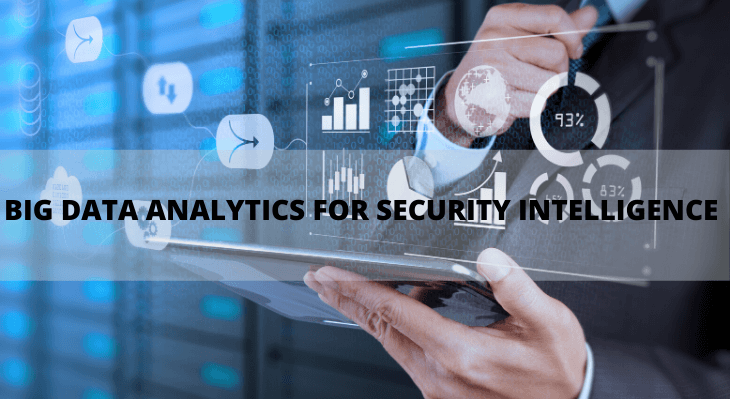Handling a ton load of data before the inception of Big Data was a very complex task. Big Data with its extremely useful features like indexing of a variety of data structures, running multiple operations on data sets simultaneously, and more.
Its ability to handle the processing of the ever-growing data has made it useful across a number of industries like retail, banking, and healthcare among many others.
It is prominently used in attaining a holistic view of the customer, identifying data irregularities, securing data, maintenance, and support, etc.
With the ever-growing data in today’s times, it has become vulnerable to various attacks. Data falling into wrong hands can put millions of dollars at risk. As per, one of the reports, the cost of a single data breach in 2019, amounted to $3.92 million.
Here big data comes into play, with its exceptional abilities to process and identify, presenting you with any abnormalities to look out for.
Organizations are loaded with tons of data that many times is not properly verified.
With the help of big data analytics, organizations are able to analyze the source of the data and also provide the information of how much complexities such type of data will attract.
Tackling fraud still remains to be a challenge for many. With the use of insights provided by big data, fraud can be controlled much easier.
The process includes detecting anomalies in data standards used earlier, using statistical parameters like probability and metrics.
Organizations can prepare themselves for any future attacks by using intelligent big data analytics to prepare themselves from any loops that might result in attacks.
The financial industry deals with tonnes of data daily, as it is becoming more customer-centric, giving easy access through digital platforms.
Though to monitor this data, the use of legacy systems and ERP is done but they still remain inefficient in making most of it.
By using big data, financial organizations can prepare themselves for any kind of threat by properly scrutinizing customer data and looking deep into his/her profile history.
Big data is used in this industry to bring transparency in deliverance to the customers in terms of product. This is done by analyzing the trends and predictions that are mainly derived from social platforms.
Fraud still remains to be an issue in the insurance industry. Big data reduces the possibilities of occurrence of any such events by analyzing previous records of customers and understanding the patterns as well as keeping a track of anomalies.
Retail segment happens to be one of the active segments, which involves itself in data collection for analyzing the latest trends for an increase in revenue but with such a huge amount of data collection, it makes itself prone to a lot of cyber threats.
Big data at this stage helps by providing security at the application level since much of the traffic retail segment drives from mobile applications.
Big data ensures security at the entry-level thus providing relevant information.
Moreover, the data location segment is also scrutinized to enquire about the location used in the overall business process so as to ensure the security of the point of sales
The telecommunication industry happens to collect data in zillions. Bigger the data, bigger the responsibility of keeping it secured.
This pushes the hefty data collecting segment for the adoption of data lakes, which are into capturing real-time data along with historic ones.
A lot of sensitive data including tower information, IMEI is stored in such data lakes which must be protected because if this gets compromised will surely attract a lot of penalties.
To counter this, strategies like storage of such amount of data to data lakes, voltage security standards have been adopted. Big data is trusted here with the responsibility of extracting values with the help of analytics from data loops.
Delta airlines became a victim to more than 20,000 phishing emails and even got charged with malicious activities done by their employees as they had complete access to millions of data.
Exabeam helped airlines in detecting improper login patterns as well as detecting frauds in terms of privileges like abnormal upgrades.
Exabeam created a baseline for the airlines and behavior analytics which were intelligent enough to tackle the abnormal behavior in day-to-day operations processes and thus alerting the airlines about the same.
JP Morgan chase being into the financial segment has access to a vast amount of financial information. Most of this information includes transactional data as well as credit card data.
To detect any indications that will lead to internal fraud it tracks employee communication with the help of big data analytics services developed by Palantir.
Japan Net Bank’s business model is reliant on a lot of data which is maintained over the internet, so quite clearly cybersecurity remains the top priority for them. The bank was unable to protect itself from various unauthorized accesses.
Splunk made it easy for them by analyzing their daily operations. The bank was provided with real-time data access options by which the majority of the exercise about finding anomaly was reduced to minutes of exercise. Security logs could be tracked by them by just a click.
For security analysis, it takes into consideration the various security logs which are generated by Data Lake. Moreover, the framework that Exabeam uses for better security intelligence includes log records, network data, and DLP scans.
All this information is considered and updated in data structures which eventually links activity as an identity.
Splunk software is designed in a way that it analyzes real-time as well as historical data with an easy to operate interface.
It indexes and scales huge data sets in a day to provide insights into the data for further analysis.
It’s designed to expand visibilities in various issues like virtual activities and application activities which eventually helps in providing the intelligence on potential threats.
A lot of security gaps present in an organization that can be overcome by Qradar. It does so by prioritizing and gathering information about suspicious behavior that is already active in the network, thus protecting the organizations from future threats.
You may also like to read:
Big Data Trends and Predictions to look out for in 2019
Big Data: Business Intelligence Insights for 2019
Data Mining Security Issues You Need to be Aware Of

